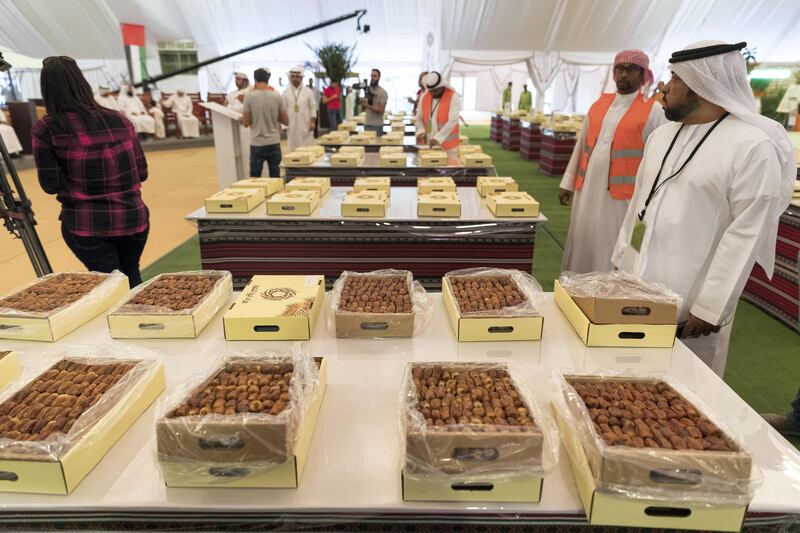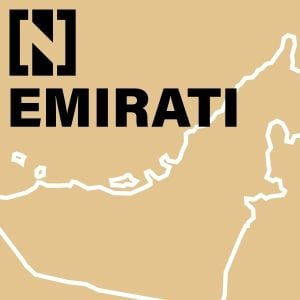Date sales topped Dh480,000 at the first annual Liwa Date Auction.
The auction, organised by the Cultural Programmes and Heritage Festival Committee, was launched due to popular demand but organisers had no prior expectation of sales.
Nearly 2,000 kilograms of dates were sold every day, according to Obaid Khalfan, the committee’s planning and projects director. Under the hammer, some fetched prices of up to Dh333 per kilogram.
"The whole point of Liwa Dates Auction was to give UAE farmers new economic opportunities, providing them with marketing tools and channels to sell their dates at real market value,” he said in a statement. “The auction will definitely become an annual event. We are already planning for the next year event, which will be more like a tour, with auction days in different locations throughout Abu Dhabi Emirate.”
Most dates were sold by farmers from the Madinat Zayed and the Liwa oasis, renowned for its dry air and fertile sands. The auction, held over the first two weekends in October at the beginning of the dry date season, attracted buyers from as far away as Ajman and Ras Al Khaimah.
_______________
Read more:
[ UAE farmers present their wares at the Liwa Date Auction ]
[ UAE's first annual Liwa Date Auction to kick off on Thursday ]
_______________
The auction gave farmers an alternative to selling in bulk to Al Foah date company, which is packages and brands UAE dates for local and international sale. The auctioned dates were hand selected by farmers from thousands, hand washed and packaged. Some fetched Dh333 per kilogram.
The auction’s best sales came from a night market in the Abu Dhabi capital, when farmers from Al Dhafra region sold Dh120,000 worth of dates.
This might all be small potatoes compared to the date festivals of Saudi, said farmers, but it represents a significant first step to having farmers brand and sell directly to customers.
Mohammed Saif, a farm owner who participated in the first night in the first round of sales, applauded the initiative’s engagement of local farmers.
“The date market in the UAE needs more advertisement,” said Mr Saif, who owns about 400 trees. “If you go to Saudi Arabia, they really sell. They advertise in KSA because they have big farms.”
He believes the diverse varieties of UAE dates will be their best selling point. He grows eight kinds.
Mr Saif credits his grandfather with the rise of Khalas date cultivation in the Emirates, initially shunned in favour of Liwa’s native dabbas.
“My grandfather’s friend gave him a gift in Saudi of 10 trees and from that year they started growing Khalas. In the first year, people didn’t like it. You can throw dabbas in the sand and it doesn’t get dirty. Khalas is stickier. People didn’t know about it and they didn’t know how to clean it.”
Today, it is one of Liwa’s most popular varieties and grown alongside dabbas.
All those years ago, Mr Saif’s grandfather knew that innovation would help heritage take root.






